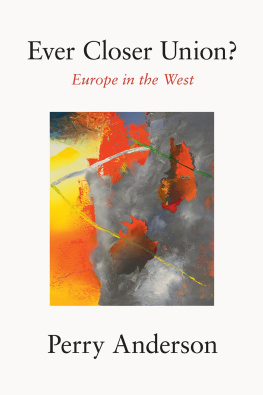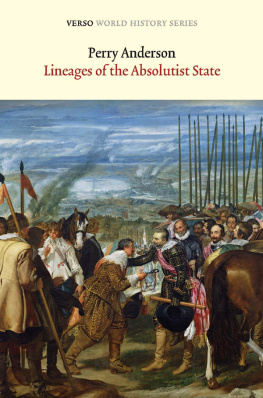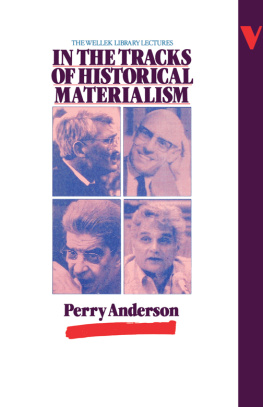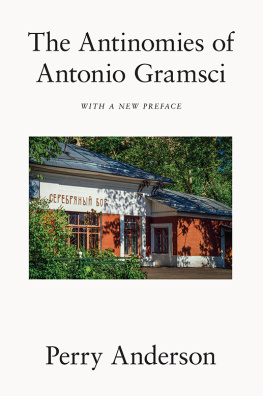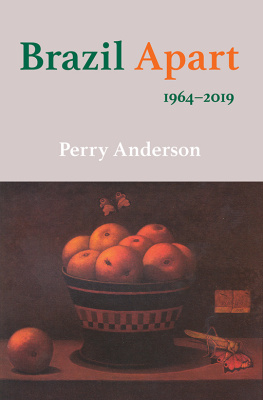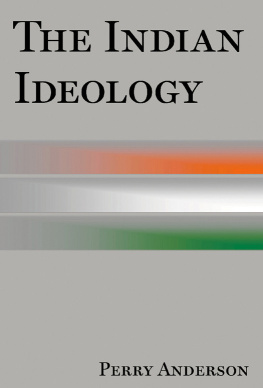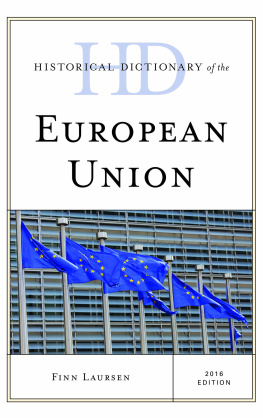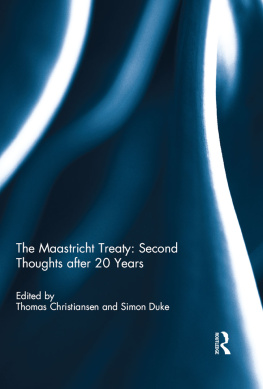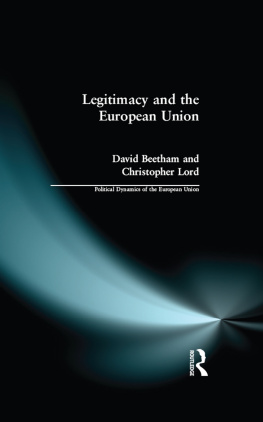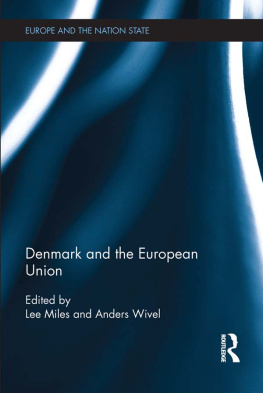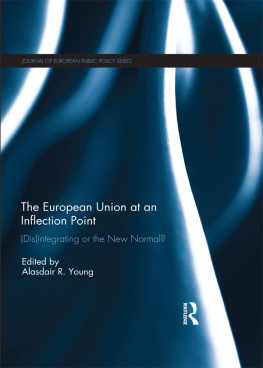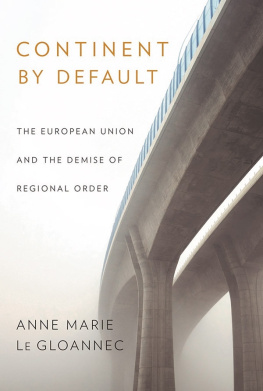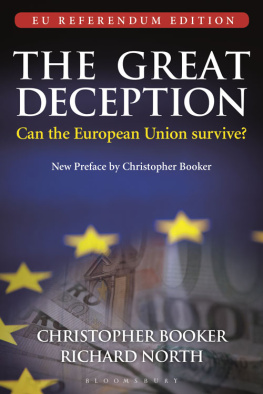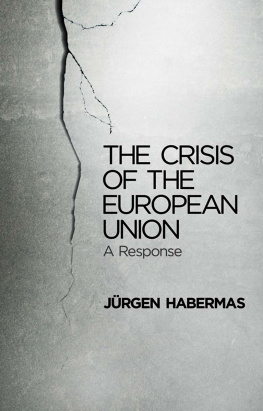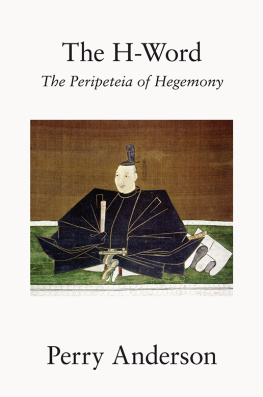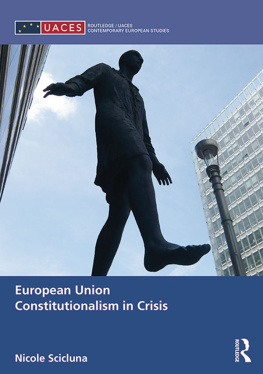Contents

Ever Closer Union?
By the same author
Passages from Antiquity to Feudalism
Lineages of the Absolutist State
Considerations on Western Marxism
Arguments within English Marxism
In the Tracks of Historical Materialism
The Antinomies of Antonio Gramsci
English Questions
A Zone of Engagement
The Origins of Postmodernity
Spectrum
The New Old World
The Indian Ideology
Brazil Apart
American Foreign Policy and Its Thinkers
The H-Word
EVER CLOSER UNION?
Europe in the West
Perry Anderson

First published by Verso 2021
Perry Anderson 2021
All rights reserved
The moral rights of the author have been asserted
1 3 5 7 9 10 8 6 4 2
Verso
UK: 6 Meard Street, London W1F 0EG
US: 20 Jay Street, Suite 1010, Brooklyn, NY 11201
versobooks.com
Verso is the imprint of New Left Books
ISBN-13: 978-1-83976-441-7
ISBN-13: 978-1-83976-444-8 (US EBK)
ISBN-13: 978-1-83976-443-1 (UK EBK)
British Library Cataloguing in Publication Data
A catalogue record for this book is available from the British Library
Library of Congress Cataloging-in-Publication Data
A catalog record for this book is available from the Library of Congress
Typeset in Minion Pro by MJ & N Gavan, Truro, Cornwall
Printed by CPI Mackays, UK
CONTENTS
The first version of Chapter 1 appeared in New Left Review 119, SeptemberOctober 2019; Chapters 2, 3 and 4 in the London Review of Books, 17 December 2020, 7 January 2021 and 21 January 2021 respectively.
My thanks to William Allen, Daniel Cohen, Anton Jger, Zep Kalb, Kawai Masahiro, Nicholas Mulder, R. Taggart Murphy, and Merijn Oudenampsen for advice on different aspects of this book.
This book can be regarded as a sequel. In 2009 I published a study of the European Union, The New Old World, that brought together an assessment of the nature of continental integration with considerations on the recent history of three leading states of the EUFrance, Germany and Italyand the principal candidateTurkeyfor its extension further east. Composed in the years following the Treaty of Maastricht, The New Old World appeared as the hammer blow of the global financial crisis of 2008 started to hit Europe. A decade later, Ever Closer Union? was written as the global pandemic of 2020 swept the West, shaking Europe and the United States with comparable severity.
The inter-connexion between the two wings of the Atlantic zone was one of the leitmotifs of the New Old World, which traced the determinant role of Washington in the inception and consolidation of the European Community, anda pattern attracting much less noticethe overwhelming predominance of American scholarship in the most original literature, be it economic, political, sociological, juridical or historical, on European integration. In the altered light of todays conditions, Ever Closer Union? returns to these two subjects, the factual and the intellectual weight of the United States in the evolution of the EU. The books division corresponds to them. In Part I, attention falls on the pivotal role of America in the onset and outcomenot least in Europeof the global economic crash of 2008. In Part II, the focus shifts to the EU itself, where an intellectual reversal has occurred, American scholarship on Europe dwindling as the United States, torn by intensifying conflicts, has become increasingly introverted, while once lagging European studies now command the field.
In this division, the impact of two writers stands out as central. Adam Tooze and Luuk van Middelaar are the authors of the most important accounts of, respectively, the global financial crisis and the character of European integration which we possess today, Crashed and The Passage to Europe. Understandably, each has earned wide public celebration of their work. But to date neither has received sustained intellectual scrutiny of the kind attempted below. That they have much in common is clear. Belonging to the same generation, which grew up in the closing years of the Cold War, one is British by birth, holding a chair in New York, the other Dutch by birth, holding a chair in Leiden while active much of the time in Brussels. Both are historians by profession: the first an authority in economic history, the second in political history. Both are accomplished writers, enjoying a broad readership. Both are polymaths, with a range of theoretical and cultural interests far beyond the ruck of their peers. By conviction, both are liberals, and both outspoken champions of the European Union.
Along with such similarities come several contrasts. Tooze, as he explains in the introduction to Crashed, is a liberal of the left, where by reason of philosophical formation and party affiliation van Middelaar is a liberal of the right. The former is proficient with financial and logistical statistics that are in some measure terra incognita for the latter, more at home with the history of ideas than of figures. Nor is the corpus of the two symmetrical. In the Anglosphere The Passage to Europe (2013) predates Crashed (2018) by five years, and by a further four years in Dutch (2009); likewise van Middelaars second book Alarums and Excursions was published in the Netherlands in 2017. Crashed, on the other hand, forms the conclusion of a trilogy whose preceding volumes Wages of Destruction (2006) and The Deluge (2014) cover the First World War, its aftermath and the Second World War, all three viewing Europe in the light of America. Van Middelaars pair of studies has no such longitude, though its tacit horizon of reference goes further back, to the time of the Congress of Vienna.
In each case, I have sought to take into account the overall arc of their work, rather than simply its best-known expression, and to relate its arguments to alternative explanations of the same history. In the case of Toozes trilogy, this has meant: first, looking at the way in which its volumes are interconnected by the special position accorded the United States in global developments of the past and the present century, above all those affecting Europe; second, considering the hermeneutic preferences that underlie the set; third, registering accounts of the origins of the financial crisis of 2008, and of the measures taken to repair it, more critical than those offered in Crashed; and lastly, reflecting on the experience of the one great centre of advanced capitalism, Japan, which escapes Toozes attention, and what light it throws on the performance of the self-proclaimed Firefighters of the Federal Reserve and the Treasury in Washington. In the case of van Middelaars diptych, the same approach has meant looking at the importance of a philosophical mentor in his formation, Frank Ankersmit; distinguishing the status of Passage, a work of history composed after seasons as an assistant in Brussels and The Hague, from Alarums, a political legitimation of the performance of the EU under a president whom he served as adviser and speechwriter; asking how far van Middelaars profile finds a precedent in the epoch of the Restoration; and, finally, surveying independent European minds who have studied the evolution of the EU from angleseconomic, juridical, political, social or culturaloverlooked by van Middelaar, and reaching rather different verdicts on it. The work of these writers forms the focus of the third chapter of this book.

